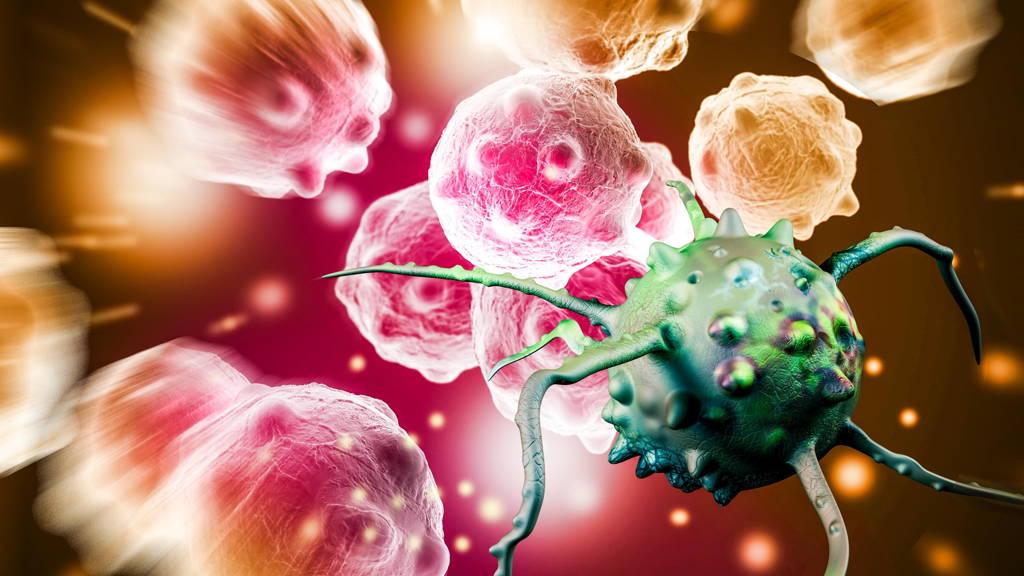The biggest problem for medical professionals like oncologists these days isn’t a lack of treatments or information. The problem is that there is too much. There are hundreds of new cancer drugs in development and new research published every minute, helping doctors treat patients with personalized combinations that target the specific building blocks of their disease.
Too much to read and too many drug combinations for doctors to choose the best option every time. AI platforms like IBM watson and Google Deepmind assist in finding the right information for the right treatment, with a speed that no doctor can match. Now there is a new platform. It’s Hannover, a Microsoft Research machine-learning project that aims to ingest all the papers and help predict which drugs and which combinations are most effective, according to the company.
In a clinical test, researchers at Oregon Health & Science University's Knight Cancer Institute are working with Hanover's architect, Hoifung Poon, to use the system to find drug combinations effective in fighting acute myeloid leukemia. This is an often-fatal cancer where treatment hasn't improved much in decades.
The researchers include Jeff Tyner, and the institute's director, Brian Druker, best known for pioneering Gleevec, a blockbuster drug for a different type of leukemia now owned by Novartis, that’s helped double those patients’ five-year survival rate since the 1990s.
At the same time however, the rising speed and falling cost for sequencing genes has boosted research, the development of therapies and means more cancer patients can gain exact data on their case. Tyner: "It’s exciting, but it also provides us with the challenge of then what to do with all the data. That is where the idea of a biologist working with information scientists and computationalists is so important. The combination of all those resources is going to help make the ultimate breakthroughs for more effective, less-toxic therapies.”
Hanover, the name referring to a seminal 1956 AI workshop at that city's Dartmouth College, is part of several projects announced Tuesday by Microsoft to develop computational approaches to better cancer care and study. Other projects involve a machine-learning and computer-vision system to help radiologists understand tumor progress and an effort that could one day allow scientists to program cells to fight disease. Exclusive insights in your inbox, from our technology reporters around the world.
Startup Deep 6 Analytics in Pasadena, California, mines unstructured data like health records to find candidates for clinical trials of new drugs. Flatiron Health, backed by a Google VC unit, compiles research and patient information from cancer centers into a database and uses that to make clinical trials more efficient.
Too much to read and too many drug combinations for doctors to choose the best option every time. AI platforms like IBM watson and Google Deepmind assist in finding the right information for the right treatment, with a speed that no doctor can match. Now there is a new platform. It’s Hannover, a Microsoft Research machine-learning project that aims to ingest all the papers and help predict which drugs and which combinations are most effective, according to the company.
In a clinical test, researchers at Oregon Health & Science University's Knight Cancer Institute are working with Hanover's architect, Hoifung Poon, to use the system to find drug combinations effective in fighting acute myeloid leukemia. This is an often-fatal cancer where treatment hasn't improved much in decades.
The researchers include Jeff Tyner, and the institute's director, Brian Druker, best known for pioneering Gleevec, a blockbuster drug for a different type of leukemia now owned by Novartis, that’s helped double those patients’ five-year survival rate since the 1990s.
Raising the odds of survival
Tyner says that more and more groundbreaking research and new technology has improved cancer research enormously. Better ability to find those specific mutations has enabled new types of drugs that target the disease more precisely, raising the odds of survival. There are more than 800 medicines and vaccines in clinical trials to treat cancer, according to a 2015 report by Pharmaceutical Research and Manufacturers of America.At the same time however, the rising speed and falling cost for sequencing genes has boosted research, the development of therapies and means more cancer patients can gain exact data on their case. Tyner: "It’s exciting, but it also provides us with the challenge of then what to do with all the data. That is where the idea of a biologist working with information scientists and computationalists is so important. The combination of all those resources is going to help make the ultimate breakthroughs for more effective, less-toxic therapies.”
Hanover, the name referring to a seminal 1956 AI workshop at that city's Dartmouth College, is part of several projects announced Tuesday by Microsoft to develop computational approaches to better cancer care and study. Other projects involve a machine-learning and computer-vision system to help radiologists understand tumor progress and an effort that could one day allow scientists to program cells to fight disease. Exclusive insights in your inbox, from our technology reporters around the world.
Other AI platforms
Microsoft is not alone in working on an AI platform to battle diseases. IBM Watson’s Oncology system is helping doctors interpret clinical data and develop individualized treatments. Google’s DeepMind Technologies has a medical unit and is working with the U.K. government health service to study whether computers can be trained to spot degenerative eye problems early enough to prevent blindness.Startup Deep 6 Analytics in Pasadena, California, mines unstructured data like health records to find candidates for clinical trials of new drugs. Flatiron Health, backed by a Google VC unit, compiles research and patient information from cancer centers into a database and uses that to make clinical trials more efficient.






